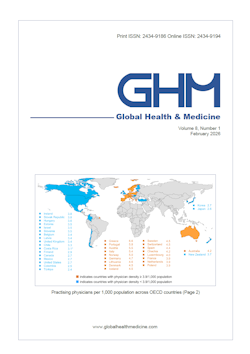Global Health & Medicine 2024;6(1):1-5.
Aging populations and perspectives of geriatric medicine in Japan
Arai H, Chen LK
It is well known that Japan's population is aging, and the number of people older than 75 years is increasing significantly. Since older people, especially old individuals, are often multimorbid and cannot be always successfully treated and cared for by individual organ-specific treatment, it is essential to utilize knowledge of geriatrics when treating such older patients. Therefore, it is indisputable that education on geriatric medicine is extremely important in Japan, which is the country with the largest aging population. However, the number of universities in Japan that offer geriatrics courses is decreasing. This means that many medical students become doctors without learning the essential characteristics of medical care for older patients despite the need for prompt treatment of older patients in clinical practice in Japan, which is a major obstacle to the development of geriatric medicine in Japan. Here, we review the current status of geriatrics in Japan and overseas and consider the future of geriatrics education to provide holistic and cost-effective medical care for older patients and improve their quality of life and well-being.
DOI: 10.35772/ghm.2024.01001







